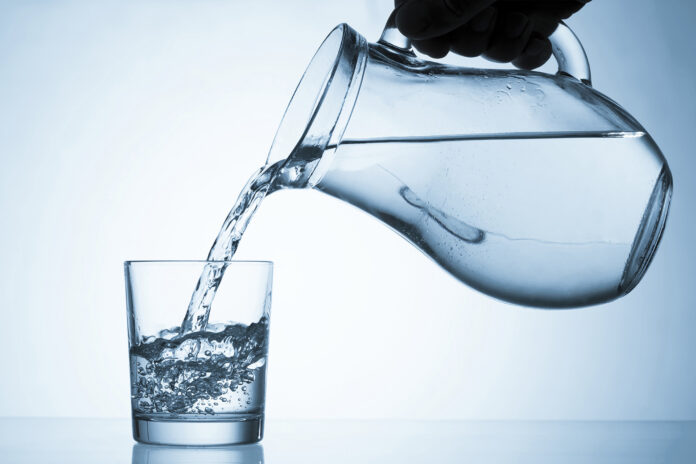Hydration plays a vital role in maintaining overall health and well-being. Water is essential for various bodily functions, such as temperature regulation, digestion, absorption, and waste elimination. Despite its importance, many people fail to consume adequate amounts of water daily, leading to dehydration and potential health consequences. This article will explore the importance of proper hydration, its impact on physical and mental health, and tips for staying adequately hydrated.
- The Role of Water in the Body
Water is the most abundant component in the human body, accounting for approximately 60% of an adult’s body weight. It is involved in numerous critical functions, including:
a. Temperature regulation: Water helps maintain a stable body temperature by dissipating heat through sweat and respiration.
b. Digestion and absorption: Water is essential for breaking down food and absorbing nutrients in the digestive system.
c. Waste elimination: Water plays a crucial role in flushing out waste products and toxins from the body through urine, sweat, and feces.
d. Lubrication: Water helps lubricate joints, reducing friction and promoting smooth movement.
e. Cell function: Water is a vital component of cells, facilitating chemical reactions and providing a medium for nutrient transport and waste removal.
- The Impact of Dehydration
Dehydration occurs when the body loses more water than it takes in, leading to an imbalance in bodily fluids. This can result from inadequate water intake, excessive fluid loss (e.g., through sweating or illness), or a combination of both. Dehydration can have a range of negative effects on physical and mental health, including:
a. Fatigue and decreased energy levels: Dehydration can cause a drop in blood volume, making the heart work harder to pump oxygen and nutrients throughout the body. This can lead to feelings of fatigue and decreased energy levels.
b. Impaired cognitive function: Dehydration can negatively impact cognitive function, including attention, memory, and decision-making.
c. Reduced physical performance: Dehydration can hinder athletic performance by decreasing strength, endurance, and coordination.
d. Kidney and urinary issues: Chronic dehydration can increase the risk of kidney stones and urinary tract infections.
e. Constipation: Inadequate water intake can contribute to constipation by causing the colon to absorb more water from the stool, leading to harder and more difficult-to-pass feces.
- How Much Water Do You Need?
The amount of water an individual needs varies based on factors such as age, sex, weight, physical activity level, and climate. The National Academies of Sciences, Engineering, and Medicine recommends a daily water intake of approximately 3.7 liters (125 ounces) for adult men and 2.7 liters (91 ounces) for adult women, including water from beverages and food.
However, it is essential to note that individual water requirements may vary, and it is crucial to listen to your body’s thirst cues and adjust your fluid intake accordingly.
- Tips for Staying Hydrated
Ensuring proper hydration is vital for overall health and well-being. Here are some tips to help you stay adequately hydrated:
a. Carry a reusable water bottle: Keeping a water bottle on hand can serve as a constant reminder to drink water throughout the day.
b. Incorporate water-rich foods into your diet: Fruits and vegetables, such as watermelon, cucumber, oranges, and lettuce, have high water content and can contribute to your overall fluid intake.
c. Drink before you feel thirsty: Thirst can be an unreliable indicator of hydration status, so it is essential to drink water regularly, even before feeling thirsty.
d. Establish a hydration routine: Set reminders or establish a routine to drink water at specific times throughout the day, such as upon waking, before meals, and before bed.
e. Customize your water intake: Consider factors such as your activity level, climate, and overall health when determining your personal hydration needs. For example, if you exercise frequently or live in a hot climate, you may require more water than the general guidelines suggest.
f. Monitor your urine color: A well-hydrated person’s urine should be pale yellow in color. Darker urine can be an indication of dehydration and a signal to increase water intake.
g. Flavor your water: If you find plain water unappealing, try adding a splash of lemon or cucumber, or experiment with herbal teas and infused water to make staying hydrated more enjoyable.
h. Limit dehydrating beverages: While moderate consumption is generally safe, excessive intake of alcohol, caffeinated beverages, and sugary drinks can contribute to dehydration. Opt for water or other hydrating beverages when possible.
- Special Considerations for Hydration
Certain circumstances may require increased attention to hydration, including:
a. Pregnancy and breastfeeding: Pregnant and breastfeeding women have increased fluid needs to support the growth and development of the fetus and milk production. It is essential to consult a healthcare provider for personalized recommendations on fluid intake during this time.
b. Illness: Fever, vomiting, and diarrhea can lead to increased fluid loss and a higher risk of dehydration. In these cases, it is crucial to drink more water and replenish electrolytes with oral rehydration solutions, as recommended by a healthcare professional.
c. Exercise and sports: Physical activity, particularly in hot and humid environments, can cause significant fluid loss through sweat. Athletes and active individuals should consume water before, during, and after exercise to maintain optimal hydration levels.
Conclusion
Proper hydration is essential for maintaining overall health and supporting vital bodily functions, from digestion and waste elimination to temperature regulation and cognitive function. Dehydration can lead to numerous physical and mental health issues, emphasizing the importance of prioritizing fluid intake. By following the tips outlined in this article, individuals can establish healthy hydration habits, contributing to improved well-being and quality of life.
